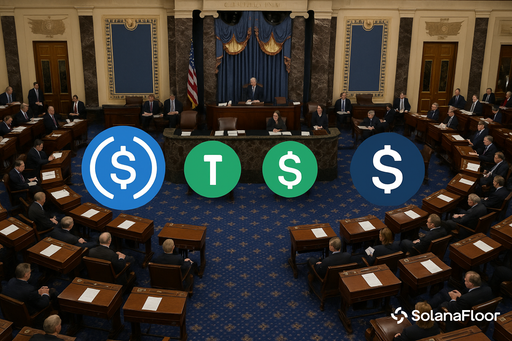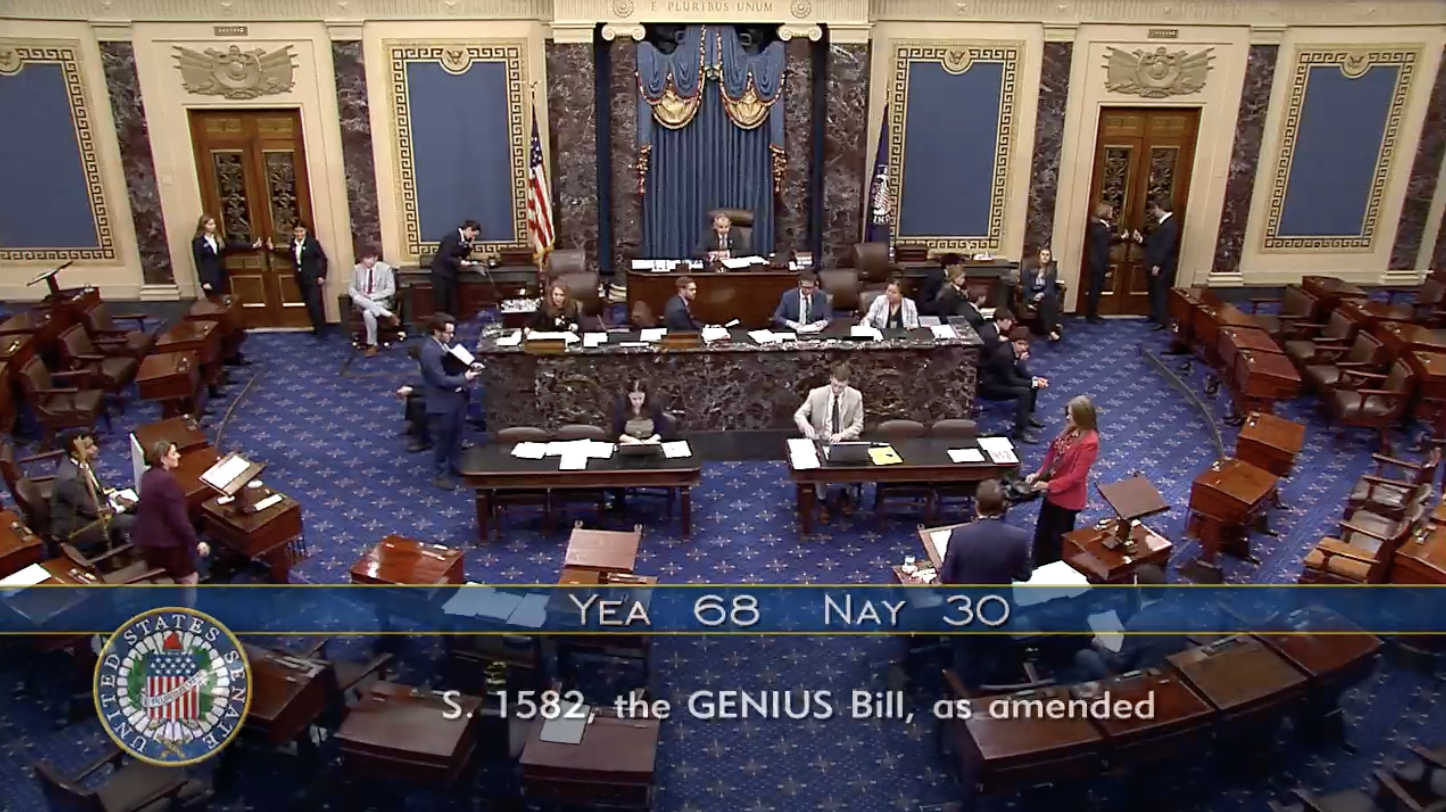
U.S Senate Passes GENIUS Act For Regulation of Stablecoins
The act aims to create a comprehensive federal regulatory framework for stablecoins, providing clear guidelines for their issuance, governance, and oversight.
- Published:
- Edited:
On Tuesday, June 17th, the United States Senate passed the Guiding and Establishing National Innovation for U.S. Stablecoins (GENIUS) Act of 2025.
The GENIUS Act was first introduced by Senator Bill Hagerty on February 4, 2025, with Senators Tim Scott, Kirsten Gillibrand, and Cynthia Lummis joining in support. The vote on the GENIUS Act marked the first time the Senate passed major legislation regulating digital assets. The bill passed with a 68-30 vote, as 18 Democrats joined most Republicans in support.

GENIUS Act Overview
The bill establishes guardrails for the approval and oversight of U.S. stablecoin issuers. These issuers create dollar-backed tokens, such as those issued by Circle, Ripple, and Tether.
It defines a stablecoin as a digital asset designed to serve as a means of payment, with a fixed redeemable value (e.g., $1), and is neither a national currency nor a security. The bill bars any entity from issuing a payment stablecoin in the U.S. unless it is approved as a permitted payment stablecoin issuer.
The GENIUS Act mandates a strict 1:1 reserve ratio, requiring that every outstanding stablecoin be fully backed by liquid, high-quality assets. These eligible reserves include U.S. currency, demand or insured deposits, and short-dated U.S. Treasuries, among others. To promote transparency, stablecoin issuers must publish regular reserve reports. Additionally, issuers are required to comply with the Bank Secrecy Act and anti–money laundering standards.
Sen. Tim Scott, Chairman of the Senate Committee on Banking, Housing and Urban Affairs, highlighted the legislation, saying, “The GENIUS Act brings digital assets and payment stablecoins out of the regulatory gray area and into an anti-money laundering compliance regime. It imposes important requirements on stablecoin issuers — the same ones banks and other financial institutions already follow — that strengthen national security and improve the Treasury Department’s ability to monitor the sector.”
If eventually passed into law, the GENIUS Act would become the most comprehensive federal law governing stablecoin issuance to date.
Commentary from Industry Leaders
Many influential figures in the broader cryptocurrency industry took to social media to express positive sentiments about the news.
Jeremy Allaire, Co-founder and CEO of Circle, framed the announcement as historical.
Brian Armstrong, Co-founder and CEO of Coinbase, called it a “big milestone”.
President Donald Trump’s AI & Crypto Czar, David Sacks, also posted his support for the bill, describing it as a “landmark regulation”.
It wasn’t all positive, though. Some members of Congress, such as Senator Peter Welch and Senator Dick Durbin, expressed reservations about the GENIUS Act, citing concerns about President Trump and his family's business ventures involving cryptocurrency.
Wider Implications
Treasury Secretary Scott Bennett pointed to projections valuing the stablecoin market at up to $3.7 trillion by 2030. He said the passage of the GENIUS Act makes that outcome more likely, calling it a “win-win-win” for all parties involved.
The surge of stablecoin usage has caught the attention of regulators. The GENIUS Act represents a significant step in ensuring that these tokens are fully backed, transparently managed, and supervised under a uniform regulatory standard.
If adopted, it could enhance consumer protection by ensuring asset backing, mitigate financial stability risks associated with unregulated digital currencies, and provide regulatory clarity for financial institutions and fintech firms. Not to mention, the ease of settling payments nearly instantaneously, rather than waiting for long periods.
Read More on SolanaFloor
IOG Foundation Launches $15m Grant Program to Accelerate AI Innovation
Want To Know More About Stablecoins?


